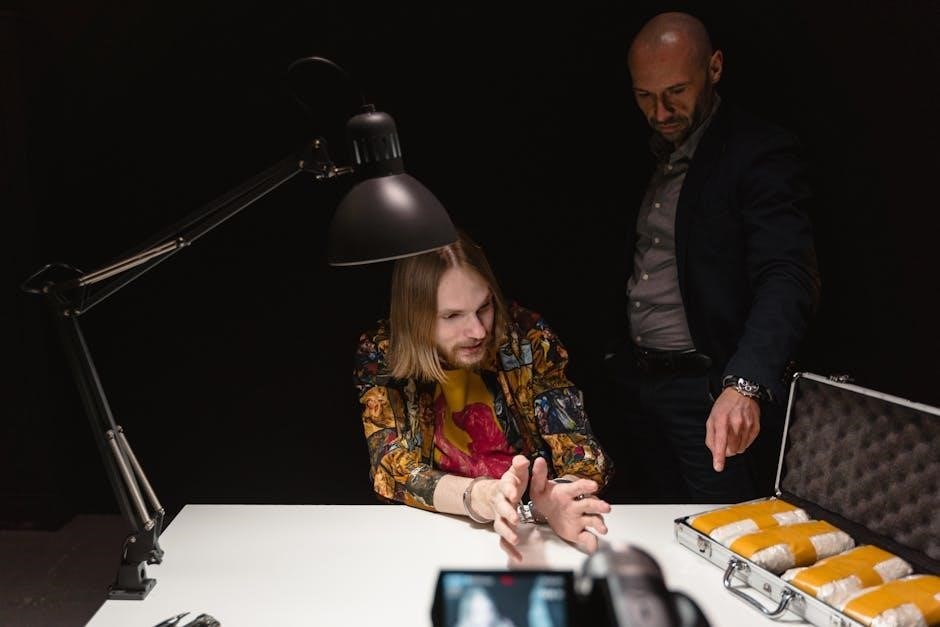
This guide provides a comprehensive overview of common F1 interview questions, offering insights into technical and general inquiries. It helps candidates prepare effectively for F1 roles.
Overview of F1 Interview Process
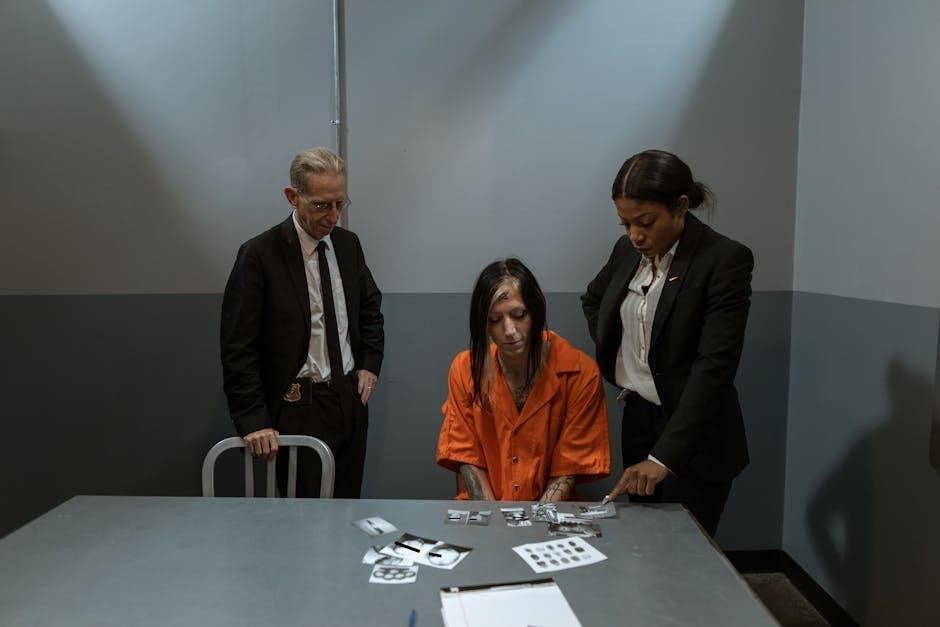
The F1 interview process is highly competitive and structured to identify top-tier candidates. It typically begins with an initial screening, where resumes and portfolios are reviewed to assess relevance and expertise. Shortlisted candidates then proceed to technical assessments, which may include problem-solving exercises or simulations specific to their role. Following this, candidates often participate in multiple interview rounds, including panel interviews with team leaders and experts. The process evaluates both technical knowledge and soft skills, such as communication and teamwork. Final rounds may involve practical demonstrations or case studies to gauge hands-on capabilities. The entire process is designed to ensure the best fit for the high-pressure, innovative environment of Formula 1.
Importance of Preparation for F1 Interviews
Preparation is vital for success in F1 interviews, as the process is highly competitive and demanding. Candidates must demonstrate deep technical knowledge, problem-solving skills, and a genuine passion for Formula 1. Researching the team or organization is essential to understand their goals, values, and recent achievements. Practicing common interview questions helps build confidence and ensures clarity in communication. Additionally, understanding F1-specific terminology and staying updated on industry trends can set candidates apart. Preparation also involves showcasing soft skills, such as teamwork and adaptability, which are crucial in the high-pressure F1 environment. A well-prepared candidate is more likely to make a strong impression and secure a role in this elite field.

Common F1 Interview Questions
Common F1 interview questions cover technical expertise, problem-solving, and passion for the sport. They often include scenario-based queries and assessments of relevant experience and skills.
General F1 Interview Questions

General F1 interview questions focus on understanding a candidate’s background, motivation, and fit for the role. Common examples include inquiries about career goals, reasons for interest in F1, and how they stay updated on industry trends. These questions also assess problem-solving skills, teamwork abilities, and adaptability. Candidates may be asked to describe their experience in high-pressure environments or how they handle challenges. Additionally, interviewers often explore a candidate’s knowledge of F1 history, key regulations, and current developments. These questions help evaluate passion, communication skills, and cultural alignment with the team or organization. Preparing thoughtful responses is crucial to making a strong impression during the interview process.
Technical F1 Interview Questions
Technical F1 interview questions delve into a candidate’s expertise in engineering, aerodynamics, and problem-solving. Examples include inquiries about optimizing engine performance, managing tire degradation, and interpreting telemetry data. Interviewers may ask candidates to explain complex systems like hybrid power units or advanced aerodynamic concepts. Problem-solving scenarios, such as addressing mechanical failures during a race, are also common. These questions assess a candidate’s ability to apply technical knowledge under pressure. Additionally, interviewers may explore a candidate’s understanding of F1 regulations and how they influence design and strategy. Demonstrating a deep understanding of technical principles and innovative thinking is essential for success in these interviews.
Preparing for F1 Interviews
Effective preparation involves researching the team, practicing common questions, and understanding technical jargon. Tailor your approach to the specific role and organization to stand out.
Researching the F1 Team or Organization
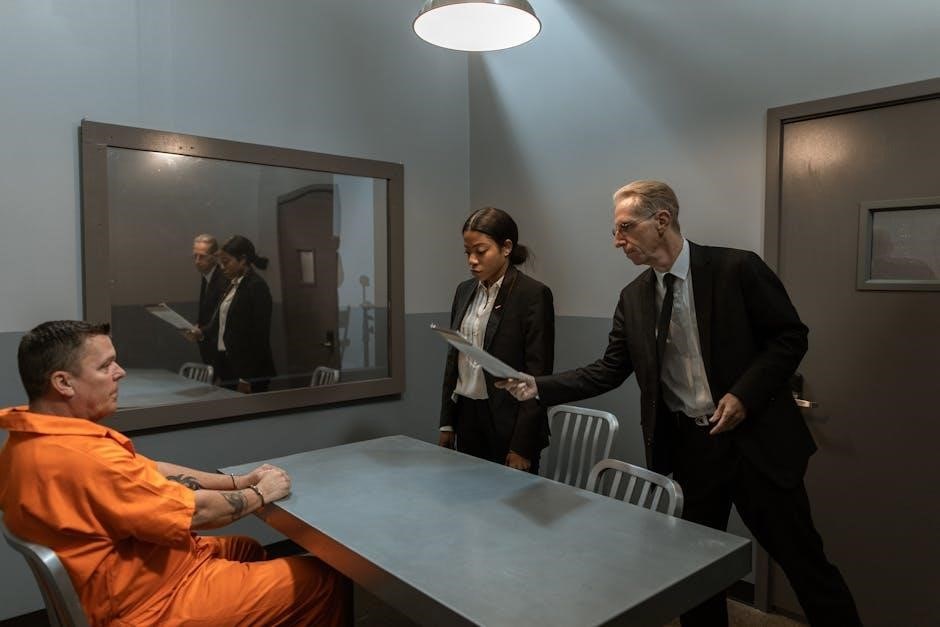
Researching the F1 team or organization is crucial for a successful interview. Understanding their history, recent performance, and key personnel can help you tailor your responses. For example, knowing about their technological advancements or recent race strategies, such as Max Verstappen’s strong start in the season, demonstrates your interest. Additionally, familiarizing yourself with their mission and values aligns your answers with their culture. This preparation also allows you to ask informed questions, showcasing your enthusiasm and knowledge. By staying updated on their latest news and achievements, you can highlight how your skills and experiences match their goals, whether it’s innovation, teamwork, or winning championships.
Practicing Common F1 Interview Questions
Practicing common F1 interview questions is essential to build confidence and clarity. Reviewing typical questions, such as those related to technical skills or teamwork, helps you articulate your experiences effectively. For instance, discussing your understanding of navigation systems like LORAN or recent developments in aviation, such as the grounding of MD-11 aircraft, shows your technical knowledge. Mock interviews can simulate real scenarios, allowing you to refine your responses. Additionally, focusing on behavioral questions, like how you handle pressure during races or adapt to new technologies, ensures you present yourself as a capable and passionate candidate. Regular practice helps you deliver polished answers, making a strong impression during the interview.
Understanding F1 Technical Jargon
Understanding F1 technical jargon is crucial for excelling in interviews, as it demonstrates your expertise and familiarity with the industry. Terms like “downforce,” “aerodynamics,” and “ECU” (Engine Control Unit) are frequently discussed. Knowledge of historical systems, such as LORAN navigation, and modern advancements like GPS, highlights your technical awareness. Familiarity with safety protocols, such as those following incidents like the MD-11 grounding, shows your understanding of industry standards. Staying updated on current technologies and being able to explain complex concepts clearly will set you apart. Practice defining and discussing these terms to ensure confidence and clarity during interviews.

F1 Interview Questions by Role
F1 roles vary, with engineers, drivers, and support staff facing specialized questions. Engineers may discuss aerodynamics, while drivers focus on race strategies and teamwork. Support staff address logistics.
F1 Engineer Interview Questions
F1 engineer interviews focus on technical expertise, problem-solving, and teamwork. Candidates are often asked about their understanding of aerodynamics, engine performance, and data analysis. They may be queried on stress analysis, material selection, and failure investigation. Interviewers also assess knowledge of F1 regulations and safety standards. Practical scenarios, such as optimizing car setup or troubleshooting issues during a race, are common. Engineers may be asked to explain their role in past projects or how they handle tight deadlines. Demonstrating a deep understanding of F1 technology and the ability to innovate under pressure is crucial. Additionally, questions about collaboration with drivers and other engineers highlight the importance of communication skills in this role.
F1 Driver Interview Questions
F1 driver interviews often focus on racing experience, decision-making, and physical fitness. Candidates may be asked about their strategies for overtaking, managing tire wear, and adapting to changing track conditions. Interviewers also inquire about their ability to work under pressure and handle high-stakes situations. Questions about past performances, such as how they handled specific races or challenges, are common. Additionally, drivers may be asked about their understanding of car setup and how they communicate feedback to engineers. Demonstrating mental resilience, adaptability, and a deep passion for racing is essential. The ability to articulate clear goals and a vision for their career in F1 is also a key aspect of these interviews.
F1 Support Staff Interview Questions

F1 support staff interviews focus on teamwork, problem-solving, and adaptability. Questions often revolve around handling high-pressure situations, such as managing logistics or resolving technical issues during races. Candidates may be asked about their experience in fast-paced environments and how they prioritize tasks. Interviewers also assess communication skills, as support staff must collaborate with drivers, engineers, and other team members. Questions about flexibility, such as working long hours or traveling frequently, are common. Additionally, candidates may be queried on their understanding of F1 regulations and safety protocols. Demonstrating attention to detail and the ability to think critically under stress is crucial. The goal is to evaluate how well they can contribute to the team’s success in a dynamic and demanding setting.
F1 Interview Process
The F1 interview process is a multistage evaluation, starting with initial screenings, followed by technical assessments, and concluding with final rounds to determine the best candidates.
Initial Screening and Shortlisting
The initial screening and shortlisting phase is the first step in the F1 interview process. This stage involves reviewing resumes, cover letters, and portfolios to identify candidates whose skills and experiences align with the role. Employers typically look for relevant technical expertise, passion for Formula 1, and a strong understanding of the sport or industry. Shortlisting is based on how well candidates meet the job requirements and their potential to contribute to the team. Those who pass this stage are invited to proceed to technical assessments or interviews. This phase is crucial as it sets the foundation for identifying top talent for further evaluation.
Technical Assessments and Tests
Technical assessments and tests are a critical part of the F1 interview process, designed to evaluate a candidate’s technical knowledge and problem-solving skills. These assessments often include practical exercises, simulations, or case studies related to F1 engineering, aerodynamics, or data analysis. Candidates may be asked to solve complex problems, interpret data, or demonstrate their understanding of F1-specific technologies. This phase helps employers identify individuals with the necessary expertise to contribute to the team’s success. Preparation for these tests requires a deep understanding of F1 technical jargon and the ability to apply theoretical knowledge in real-world scenarios. The results of these assessments play a significant role in determining whether a candidate progresses to the final interview rounds.
Final Interview Rounds
The final interview rounds in the F1 interview process are a culmination of the earlier stages, focusing on assessing a candidate’s fit within the team and their ability to contribute to the organization’s goals. These interviews often involve meetings with senior officials, team principals, or other key stakeholders. Candidates are typically asked to discuss their long-term career aspirations, how they align with the team’s vision, and their ability to work under pressure in high-stakes environments. This stage also provides an opportunity for candidates to ask questions and demonstrate their passion for Formula 1. The final rounds are crucial in determining the best fit for the role and the team, ensuring a cohesive and driven workforce.
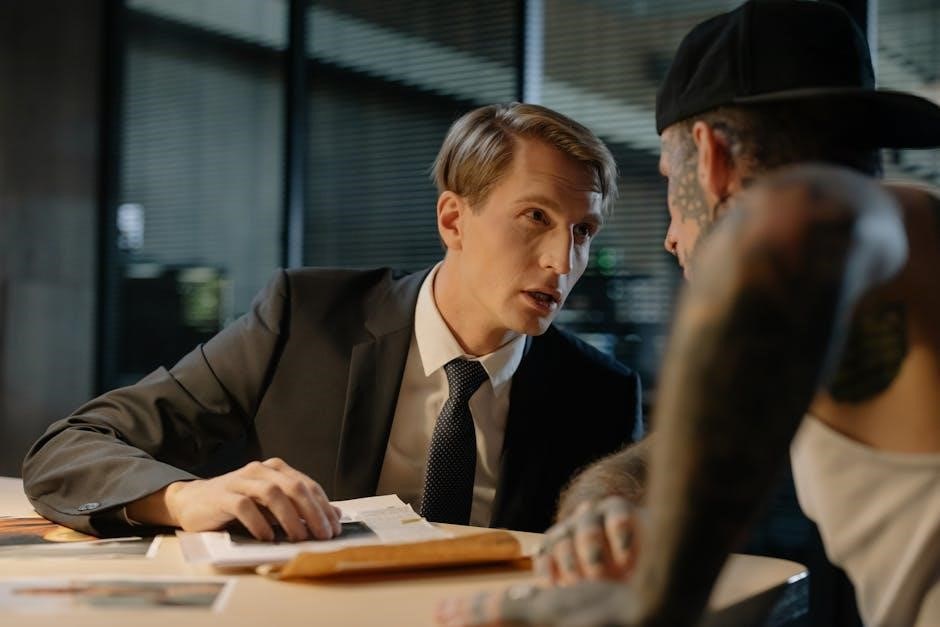
Tips for Success in F1 Interviews
Exude confidence, showcase passion for F1, and demonstrate problem-solving skills. Highlight teamwork, adaptability, and technical knowledge to stand out in competitive interviews.
Body Language and First Impressions
Body language plays a crucial role in F1 interviews, as it conveys confidence and professionalism. Maintain good posture, make eye contact, and smile to create a positive first impression. Dress appropriately, reflecting the team’s culture, and avoid fidgeting or nervous gestures. Show enthusiasm and engagement through open and approachable non-verbal cues. A firm handshake and confident tone can also leave a lasting impact. Remember, first impressions set the tone for the entire interview, so ensure your body language aligns with your passion for F1 and readiness to contribute to the team’s success.

Showcasing Passion for F1
Demonstrating a genuine passion for Formula 1 is essential during interviews, as it highlights your dedication and enthusiasm for the sport. Share personal stories of how F1 has inspired you, such as following specific drivers or teams, or how you’ve stayed updated on the latest developments in the industry. Discuss your favorite races, key moments, or technological advancements that fascinate you. Connecting your passion to the team’s goals shows you’re motivated to contribute meaningfully. Be specific about how your interests align with the organization’s values and objectives. This not only showcases your knowledge but also your commitment to being part of the F1 community. Passion can be a deciding factor in standing out as a candidate.
Following Up After the Interview
Following up after an F1 interview is crucial to leave a lasting impression and demonstrate professionalism. Send a thank-you note within 24 hours, expressing gratitude for the opportunity and reiterating your interest in the role. Briefly mention key points discussed during the interview to show engagement. Politely inquire about the next steps in the process and the expected timeline for a decision. Ensure your communication is concise and professional, avoiding overly aggressive follow-ups. This step not only shows respect for the interviewer’s time but also reinforces your enthusiasm for joining the team. A well-crafted follow-up can significantly enhance your chances of securing the position.
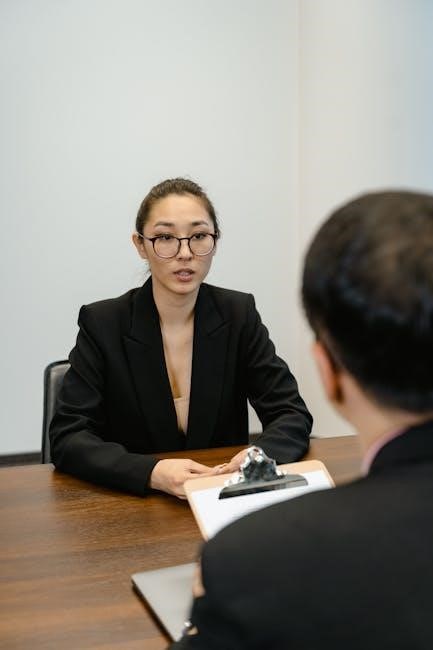
Conclusion
Securing a role in F1 requires meticulous preparation and a deep understanding of the industry. This guide equips you with essential insights and strategies to excel in interviews. Use it wisely to achieve your F1 career goals.
Final Thoughts on F1 Interview Preparation
Preparing for F1 interviews demands a blend of technical expertise, passion, and soft skills. Candidates must demonstrate a deep understanding of the sport, its technology, and team dynamics. Emphasize your unique strengths and experiences, showcasing how they align with the role. Stay updated on industry trends and be ready to think critically. Practice articulating your thoughts clearly and confidently. Leveraging resources like F1 interview questions and answers PDFs can significantly enhance your readiness. Remember, persistence and dedication are key to standing out in this competitive field. By combining thorough preparation with genuine enthusiasm, you can increase your chances of securing a coveted role in Formula 1.
Additional Resources
Explore recommended books, online courses, and forums for deeper insights into F1 interviews. Resources include “The Art of Racing” and F1 Forums for comprehensive preparation.
Recommended Reading for F1 Interviews
Enhance your preparation with essential books like “The Art of Racing” and “Formula 1: The Complete Guide”. These resources offer insights into team dynamics, technical aspects, and industry trends. Online platforms like F1 Forums and official team websites provide updated interview tips and real-world experiences. Additionally, “F1 Engineering Explained” is a must-read for technical roles, covering aerodynamics and engine design. These materials help you understand the industry’s expectations and refine your responses to common questions. By leveraging these resources, you can gain a competitive edge and demonstrate your knowledge during interviews. They are indispensable for anyone aiming to excel in the F1 job market.